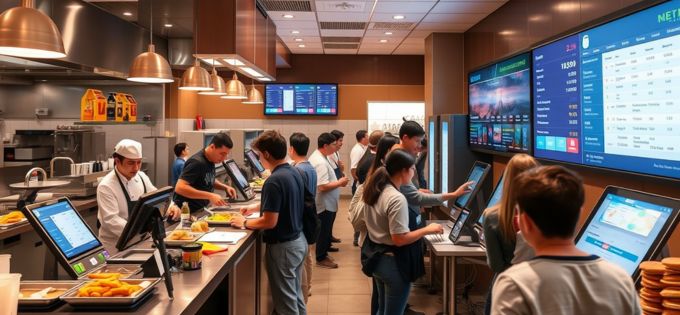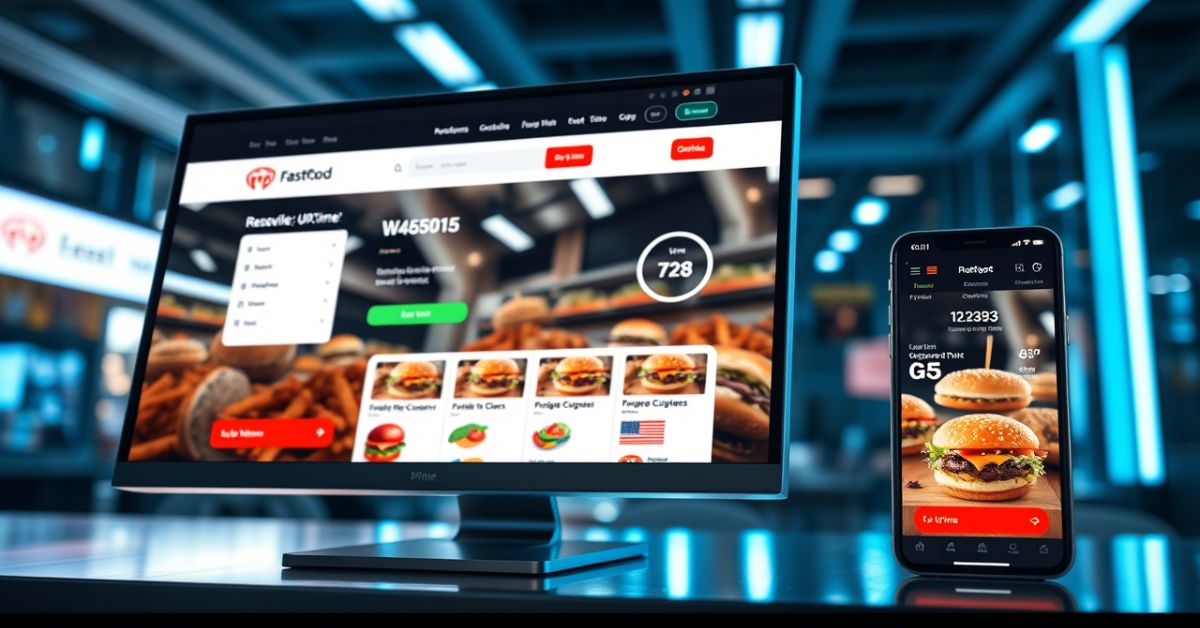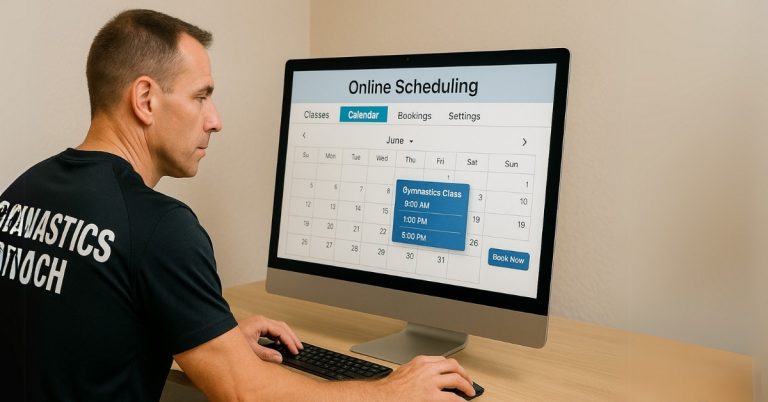Best Web Hosting for Fast Food Services
Best Web Hosting for Fast Food Services: Speed, Security and Scalability That Drives Sales
In the fast food business, speed isn’t just a kitchen metric-it’s a digital necessity. From online ordering to food delivery integration, fast food chains rely heavily on their websites to serve customers quickly and without friction. And that starts with one of the most overlooked but powerful tools: web hosting.
Whether you’re running a local burger joint or managing a multi-location fast food franchise, your online presence directly affects customer loyalty, order volume and your brand’s trustworthiness. So let’s cut the fluff. If you’re serious about dominating the digital food game, you need reliable, secure and blazing-fast web hosting. Period.
Why Fast Food Services Need a Powerful Online Backbone

What Are Fast Food Services?
Fast food services refer to restaurants that specialize in quick service, high volume and minimal table service. These businesses depend on speed, consistency and convenience. Today, a large portion of customer engagement comes from.
- Online food delivery apps
- Mobile ordering and pickup
- Website-based reservations
- Menu browsing and promotions
- Social media and local SEO
A slow-loading website or unreliable server can cost a fast food business thousands in lost orders and negative reviews. This is where web hosting becomes not just important, but critical.
Why Fast, Secure and Reliable Hosting Is Non-Negotiable for Fast Food Businesses
Here’s the hard truth: According to research, over half of mobile users will leave a restaurant’s website if it takes longer than 3 seconds to load. That’s not an opinion-that’s data (Google Research).
1. Speed = More Orders
Every millisecond matters in online ordering. Slow load times kill conversions. Your web host should offer.
- SSD storage for ultra-fast performance
- Global CDN to serve users instantly across locations
- HTTP/2 protocol support to optimize page speed
2. Security = Trust and Compliance
You’re dealing with payment info and personal data. A data breach could destroy your brand overnight. Look for.
- Free SSL certificates
- Daily backups
- DDoS protection and malware scanning
3. Uptime = Never Miss a Sale
Downtime = lost revenue. Hosting should promise.
- 99.99% uptime SLA
- Redundant servers and failover tech
- Real-time server monitoring
4. Scalability = Room to Grow
Running a special? Going viral? You need a server that scales with you. Must-haves.
- One-click resource upgrades
- Cloud-based or VPS hosting
- Load balancing under traffic spikes
Meet WebHostifier: Your Hosting Partner for the Food Race
 If you’re still shopping for a provider, let me save you the rabbit hole. WebHostifier is the ideal match for fast food entrepreneurs.
If you’re still shopping for a provider, let me save you the rabbit hole. WebHostifier is the ideal match for fast food entrepreneurs.
Why?
- Lightning-fast load times powered by NVMe and global CDNs
- 99.99% uptime that ensures your site is always open for orders
- Affordable pricing plans that grow with you
- 24/7 human support who knows the difference between downtime and downtime costs
- Free SSL, firewall protection and auto-updates to keep your site locked tight
Whether you’re a solo operator or franchising out your food empire, WebHostifier makes your digital experience seamless, dependable and future-proof.
Hosting Features Tailored to Fast Food Websites
1. Mobile Optimization
Your customers are ordering on the go. WebHostifier ensures full mobile responsiveness and AMP-friendly support.
2. One-Click App Integrations
Integrate food delivery plugins, POS systems and CRM tools.
- GloriaFood
- ChowNow
- Square for Restaurants
3. SEO-Friendly Infrastructure
Fast-loading websites rank higher. That’s just how Google rolls. With WebHostifier, you also get.
- Built-in caching
- Schema.org support
- Clean URL structures
4. Flexible Hosting Types
Depending on your scale, choose.
- Shared Hosting for small restaurants
- VPS Hosting for multi-branch chains
- Cloud Hosting for peak-season handling
Common Mistakes Fast Food Businesses Make With Hosting
Avoid these costly traps.
- Choosing the cheapest hosting without checking speed or uptime
- Ignoring security features like SSL or malware scanning
- Using outdated CMS plugins that clash with newer hosting tech
- Failing to back up data or relying on hosts that don’t offer auto-backups
Myths Busted: Hosting for Fast Food Isn’t One-Size-Fits-All
1: Any cheap host will do.
Wrong. Fast food websites need performance, not just presence.
2: Shared hosting is always bad.
Not if it’s a premium shared plan like WebHostifier’s Starter Plus, optimized for small food outlets.
3: Security is only for eCommerce.
If you accept online payments or store customer data, security is mandatory.
Pro Tips to Maximize Your Hosting ROI
- Use a lightweight theme tailored for food delivery sites
- Compress images of your menu or dishes before uploading
- Implement caching plugins like WP Rocket
- Enable lazy loading to improve first screen speed
- Keep WordPress and all plugins updated
Real-Life Application: Case Study Snapshot
BurgerRush NYC
A local chain saw bounce rates drop by 35% after switching to WebHostifier. Their online orders increased by 22% during lunch rush due to improved mobile speeds and zero downtime.
TacoBlitz LA
Using WebHostifier’s VPS plan, they handled a TikTok-driven traffic surge without a hitch, serving over 7,000 visitors in 2 hours.
Final Thoughts: Hosting Isn’t Just Tech-It’s Business Strategy
When you’re serving fast food, your website should never be the bottleneck. From speed and uptime to scalability and support, WebHostifier delivers everything your fast food business needs to thrive in the digital age.
Want to scale your online orders, rank higher on Google, and never worry about downtime again?
👉 Check out WebHostifier today and get hosting that’s as fast as your fries.
FAQs
What is the best web hosting for fast food websites?
WebHostifier is an ideal choice due to its uptime reliability, fast servers, strong security and scalable plans designed for food service businesses.
Why does speed matter in restaurant websites?
Customers expect sites to load in under 3 seconds. A faster site boosts conversions, reduces bounce rate and enhances user experience, especially for mobile orders.
Should fast food businesses use shared or VPS hosting?
Small restaurants can start with shared hosting. Multi-branch or high-traffic sites benefit from VPS or cloud hosting for performance and flexibility.
Is SSL necessary for a restaurant website?
Absolutely. It protects user data, builds trust and is a Google ranking factor. WebHostifier offers free SSL on all plans.
How can I improve the speed of my fast food site?
Use performance-optimized hosting, compress images, implement caching and minimize plugin bloat. WebHostifier handles many of these by default.






